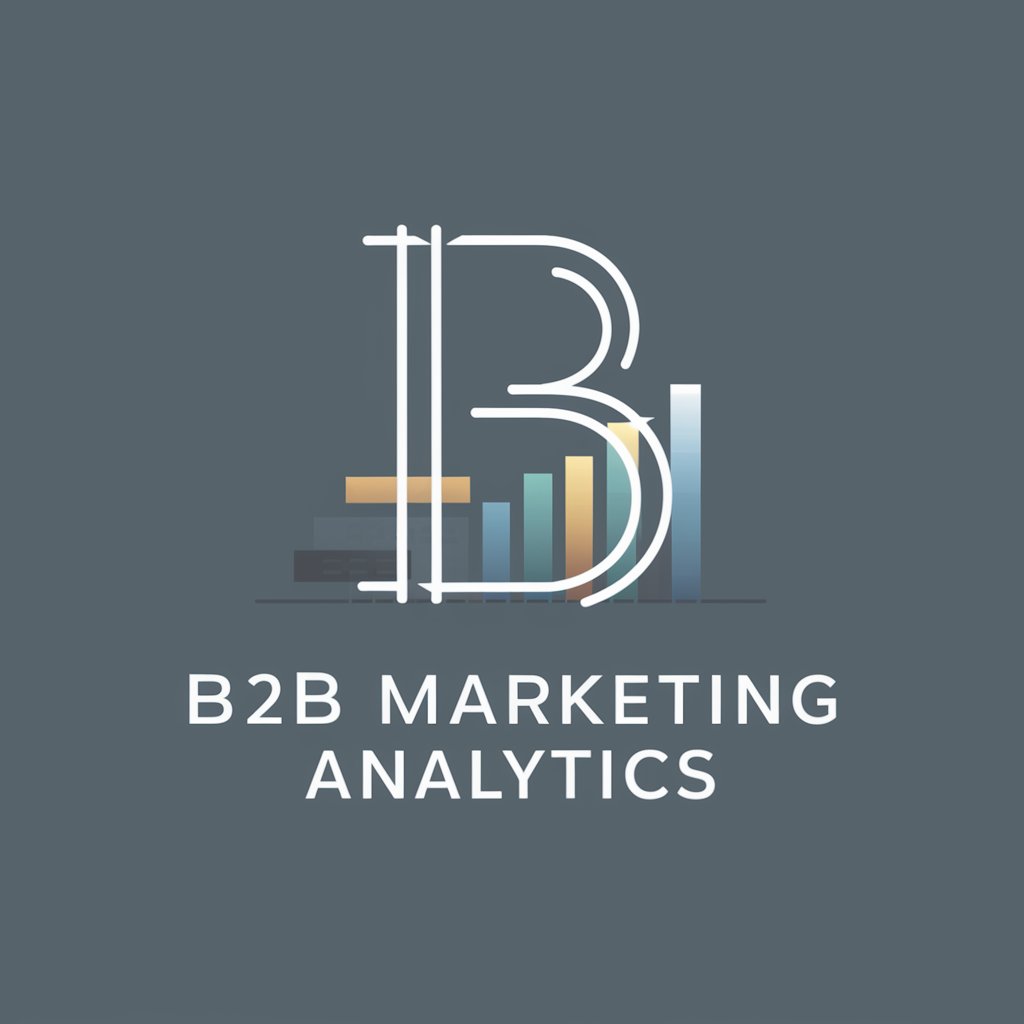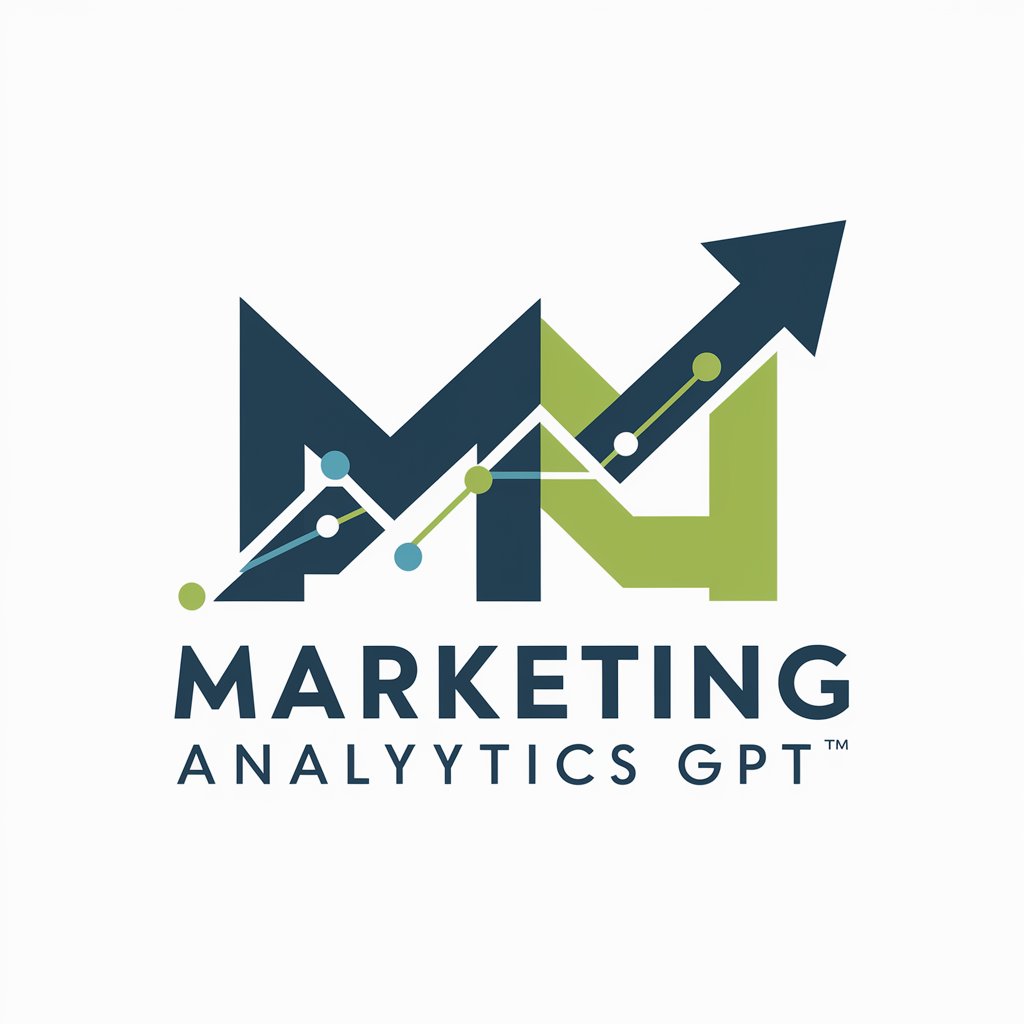B2B Marketing Analytics - Comprehensive B2B Analytics

Welcome to your hub for B2B marketing analytics insights.
Empower Your B2B Marketing with AI-Driven Insights
What are the best practices for improving ROI in B2B marketing campaigns?
How can market segmentation enhance B2B marketing strategies?
What tools are most effective for customer journey analytics in B2B marketing?
Can you explain the impact of data-driven marketing strategies on business growth?
Get Embed Code
Introduction to B2B Marketing Analytics
B2B Marketing Analytics is a specialized domain within the broader field of marketing analytics, focused on analyzing and interpreting data from business-to-business (B2B) market activities. Its core purpose is to provide insights into the effectiveness of marketing strategies, customer behavior, and market trends, facilitating data-driven decision-making for businesses operating in B2B environments. By leveraging data from various sources, including CRM systems, website analytics, social media interactions, and email campaigns, B2B Marketing Analytics helps in understanding the customer journey, optimizing marketing efforts, and ultimately driving sales and revenue growth. For instance, a company might use B2B Marketing Analytics to analyze the conversion rates of a recent email campaign targeted at procurement managers in the manufacturing sector, identifying which messages resonated best and why, thereby refining future campaigns for better performance. Powered by ChatGPT-4o。

Main Functions of B2B Marketing Analytics
Market Segmentation and Targeting
Example
Analyzing customer data to identify distinct segments within the B2B market, such as industries, company size, or decision-maker roles.
Scenario
A software as a service (SaaS) company uses market segmentation to tailor its marketing messages for small businesses and enterprise clients separately, increasing engagement rates through personalized content.
ROI Analysis
Example
Calculating the return on investment for various marketing campaigns to determine the most cost-effective strategies.
Scenario
An industrial equipment manufacturer analyzes the ROI of its trade show participations versus its digital advertising campaigns, discovering that digital ads offer a higher ROI and adjusting its budget allocation accordingly.
Customer Journey Analytics
Example
Mapping and analyzing the touchpoints a potential B2B customer interacts with throughout the buying process.
Scenario
A B2B financial services firm uses customer journey analytics to identify key decision points for CFOs when selecting a new banking partner, enabling the firm to optimize its sales funnel and improve conversion rates.
Predictive Analytics
Example
Using historical data to forecast future market trends, customer behaviors, or campaign outcomes.
Scenario
A cloud computing provider employs predictive analytics to forecast demand for its services in different sectors, guiding its product development and marketing strategies.
Ideal Users of B2B Marketing Analytics Services
Marketing Professionals
Marketing managers, strategists, and analysts in B2B companies who need to plan, execute, and measure the effectiveness of their marketing campaigns. They benefit from detailed insights into customer behavior, campaign performance, and market trends to make informed decisions.
Sales Teams
Sales professionals and managers looking to align closely with marketing efforts and better understand the customer journey. Insights from B2B Marketing Analytics can help them tailor their approach to prospects, improving conversion rates and customer relationships.
C-Level Executives
Executives such as CEOs, CMOs, and CFOs who require a clear overview of marketing performance and market opportunities to guide strategic decisions. Analytics provide them with the data needed to steer the company towards growth and profitability.
Product Managers
Individuals responsible for guiding the success of a product and leading the cross-functional team that is responsible for improving it. They use B2B Marketing Analytics to understand market needs, customer feedback, and competitive positioning to inform product development and positioning.

How to Use B2B Marketing Analytics
Start Your Journey
Begin by visiting a dedicated platform offering B2B marketing analytics solutions for a free trial, ensuring access without the need for login or a subscription to premium services.
Identify Your Objectives
Clearly define your business goals and objectives. Whether it's enhancing lead generation, improving customer segmentation, or optimizing marketing spend, understanding your goals is crucial for effective analytics.
Collect and Integrate Data
Gather data from various sources such as CRM systems, website analytics, social media interactions, and email campaigns. Ensure the integration of these data points for a unified view of your marketing efforts.
Analyze and Interpret Data
Utilize analytics tools to examine the collected data. Look for patterns, trends, and insights that can inform your marketing strategies. This step often involves advanced analytics techniques like segmentation analysis, conversion funnel analysis, and predictive modeling.
Act on Insights
Leverage the insights gained from your analysis to make informed decisions. This could involve adjusting your marketing campaigns, targeting new market segments, or reallocating your budget. Continuously measure the impact of these changes to optimize your marketing strategies.
Try other advanced and practical GPTs
Business Expert
Empowering Business Decisions with AI

Marketing Analytics
Empower Your Marketing with AI-Driven Insights

Data Visualisation Assistant
Visualizing data, simplifying insights.

Jay GPT
Empowering decisions with AI-driven insights.

Writing
Elevate Your Writing with AI Power

SEO Content Writing
Elevate Your Content with AI

ERP Systems
Streamlining Business Processes with AI

ERP
Empowering Businesses with AI-driven ERP

Code Assistant
Your AI-powered coding companion

CoderGPT
Empowering code creation with AI.

SQL Mentor
Tailored SQL Guidance at Your Fingertips

ZENCODE
Empowering Innovation with AI

Frequently Asked Questions about B2B Marketing Analytics
What is B2B Marketing Analytics?
B2B Marketing Analytics refers to the systematic analysis of data and metrics related to business-to-business marketing activities. It involves the use of statistical tools and modeling techniques to understand market trends, evaluate marketing performance, and enhance decision-making processes.
How can B2B Marketing Analytics improve lead generation?
By analyzing customer behavior and engagement patterns, B2B Marketing Analytics helps identify the most effective channels and content for lead generation. It enables businesses to target potential customers more precisely, optimizing marketing efforts and improving conversion rates.
What role does customer segmentation play in B2B Marketing Analytics?
Customer segmentation is crucial in B2B Marketing Analytics as it allows businesses to categorize their audience into distinct groups based on specific characteristics or behaviors. This enables more targeted and personalized marketing strategies, leading to higher engagement and conversion rates.
Can B2B Marketing Analytics predict future trends?
Yes, through the use of predictive analytics and machine learning algorithms, B2B Marketing Analytics can forecast future market trends, customer behaviors, and potential opportunities. This allows businesses to proactively adjust their strategies and gain a competitive edge.
How important is data quality in B2B Marketing Analytics?
Data quality is paramount in B2B Marketing Analytics. Accurate, complete, and timely data is essential for reliable analysis and insights. Poor data quality can lead to incorrect conclusions and suboptimal marketing decisions, undermining the effectiveness of marketing efforts.
